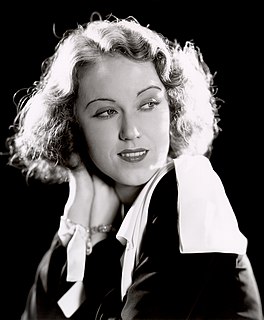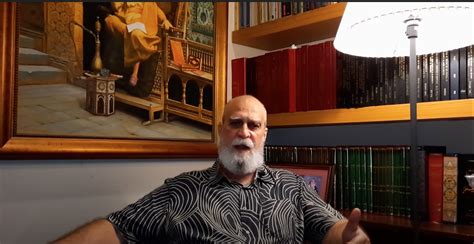A Quote by Fay Wray
That was one time when my technique absolutely deserted me, I must admit. There was a wax face that he had created himself to cover his own ugliness. I was in his clutches and I had to hit him in the face.
Related Quotes
Man shouldn’t be able to see his own face – there’s nothing more sinister. Nature gave him the gift of not being able to see it, and of not being able to stare into his own eyes. Only in the water of rivers and ponds could he look at his face. And the very posture he had to assume was symbolic. He had to bend over, stoop down, to commit the ignominy of beholding himself. The inventor of the mirror poisoned the human heart.
The utter failure came at the Crucifixion in the tragic words, 'My God, my God, why hast thou forsaken me?' If you want to understand the full tragedy of those words you must realize what they meant: Christ saw that his whole life, devoted to the truth according to his best conviction, had been a terrible illusion. He had lived it to the full absolutely sincerely, he had made his honest experiment, but it was nevertheless a compensation. On the cross his mission deserted him. But because he had lived so fully and devotedly he won through to the Resurrection body.
There were times when it appeared to Dorian Gray that the whole of history was merely the record of his own life, not as he had lived it in act and circumstand, but as his imagination had created it for him, as it had been in his brain and in his passions. He felt that he had known them all, those strange terrible figures that had passed across the stage of the world and made sin so marvellous, and evil so full of subtlety. It seemed to him that in some mysterious way their lives had been his own.
This soldier, I realized, must have had friends at home and in his regiment; yet he lay there deserted by all except his dog. I looked on, unmoved, at battles which decided the future of nations. Tearless, I had given orders which brought death to thousands. Yet here I was stirred, profoundly stirred, stirred to tears. And by what? By the grief of one dog. Napoleon Bonaparte, on finding a dog beside the body of his dead master, licking his face and howling, on a moonlit field after a battle. Napoleon was haunted by this scene until his own death.
It meant that Diana had not waited for any explanation, however halting and imperfect, but had condemned him unheard; and this showed a much harder, far less affectionate woman than the Diana he had known or had thought he knew - a mythical person, no doubt created by himself. It had of course been evident from her letter, which made no reference to his; but he had not chosen to see the evidence and now it was absolutely forced upon his sight it made his eyes sting and tingle again. And deprived of his myth he felt extraordinarily lonely.
He had no memory of ever being hugged like this, as though by a mother. The full weight of everything he had seen that night seemed to fall in upon him as Mrs. Weasley held him to her. His mother's face, his father's voice, the sight of Cedric, dead on the ground all started spinning in his head until he could hardly bear it, until he was screwing up his face against the howl of misery fighting to get out of him.
My father had put these things on the table. I looked at him standing by the sink. He was washing his hands, splashing water on his face. My mamma left us. My brother, too. And now my feckless, reckless uncle had as well. My pa stayed, though. My pa always stayed. I looked at him. And saw the sweat stains on his shirt. And his big, scarred hands. And his dirty, weary face. I remembered how, lying in my bed a few nights before, I had looked forward to showing him my uncle's money. To telling him I was leaving. And I was so ashamed.
Moonlight streamed in, sending loving beams over his face. He closed his eyes and basked in it, and I could tell it was calling to him, even though the moon was not full. She didn't speak to me, but Samuel had once described her song to me in the words of a poet. The expression of bliss on his face while he listened to her music made him beautiful.
When the father dies, he writes, the son becomes his own father and his own son. He looks at is son and sees himself in the face of the boy. He imagines what the boy sees when he looks at him and finds himself becoming his own father. Inexplicably, he is moved by this. It is not just the sight of the boy that moves him, not even the thought of standing inside his father, but what he sees in the boy of his own vanished past. It is a nostalgia for his own life that he feels, perhaps, a memory of his own boyhood as a son to his father.
His face set in grim determination, Richard slogged ahead, his fingers reaching up to touch the tooth under his shirt. Loneliness, deeper than he had never known, sagged his shoulders. All his friends were lost to him. He knew now that his life was not his own. It belonged to his duty, to his task. He was the Seeker. Nothing more. Nothing less. Not his own man, but a pawn to be used by others. A tool, same as his sword, to help others, that they might have the life he had only glimpsed for a twinkling. He was no different from the dark things in the boundary. A bringer of death.
Men and women make their own beauty or their own ugliness. Sir Edward Bulwer Lytton speaks in one of his novels of a man "who was uglier than he had any business to be;" and, if we could but read it, every human being carries his life in his face, and is good-looking or the reverse as that life has been good or evil. On our features the fine chisels of thought and emotion are eternally at work.
My father had not been outside the house except to drive back and forth to work or sit out in the backyard, for months, nor had he seen his neighbors. Now he looked at them, from face to face, until he realized I had been loved by people he didn't even recognize. His heart filled up, warm again as it had not been in what seemed so long to him- save small forgotten moments with Buckley, the accidents of love that happened with his son. ~pgs 209-210; Buckley, Lindsey and Jack on Susie



































